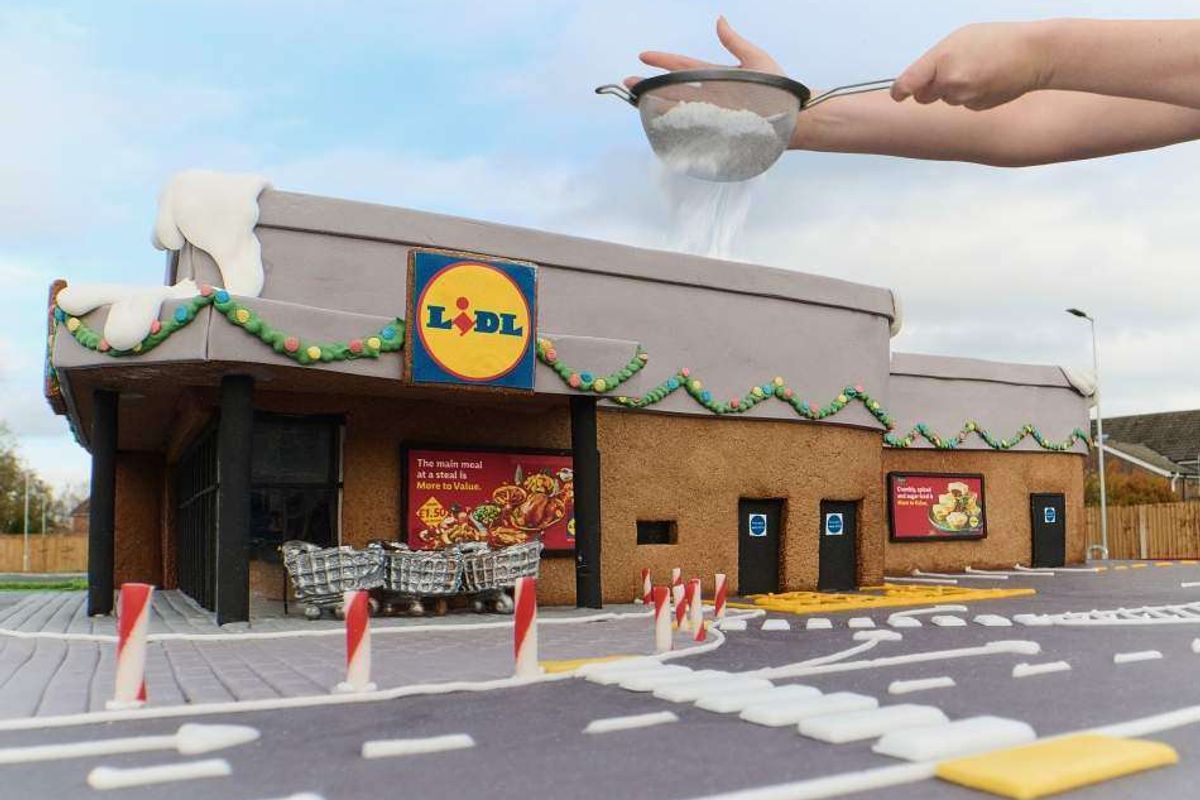Lidl GB has officially opened its 1,000th store today in East Grinstead, marking a major milestone in the discounter’s rapid UK expansion as it released its first-ever socioeconomic impact report showing a £14.5bn Gross Value Added (GVA) contribution to the British economy in FY2024.
The landmark opening – just over 30 years since Lidl arrived in Great Britain – comes as the retailer cements its position as the UK’s fastest-growing bricks-and-mortar supermarket for more than two years [Worldpanel by Numerator, 12 w/e 2nd November 2025]. Lidl says its growth is delivering benefits “far beyond the basket”, from supplier investment and job creation to community food support.
The retailer’s impact report outlines what Lidl terms the "Lidl Effect": a wide-ranging economic footprint driven by its operations, supply chain and investment.
In FY2024, Lidl:
- Generated £14.5bn in GVA
- Paid over £1bn in tax, supporting public services
- Invested £5.8bn in British food
- Sourced more than two-thirds of its products from UK suppliers
- Supported 281,813 jobs across its direct operations and supply network
Lidl also highlights that for every £1 of direct value it creates, British suppliers generate £7, with a further £2 added across the broader value chain.
Milestone store signals continued expansion
Marking the 1,000th store opening, Lidl GB chief executive Ryan McDonnell said the milestone represents far more than another addition to its estate.
“Cutting the ribbon on our 1,000th store is a milestone moment for us as we celebrate not just another new Lidl, but the meaningful impact it will have,” McDonnell commented. “We know there are still many communities which could benefit from the Lidl Effect so we remain laser focused on delivering that through our ambitious growth plans.”
Government also welcomed the achievement. Business Secretary Peter Kyle said: “It’s brilliant to see a retailer like Lidl thriving in the UK, opening new stores, supporting a quarter of a million jobs and delivering billions for our economy. This milestone shows the confidence businesses have in our plan for growth, and I’m excited to see more opportunities like this open up in communities across the country.”
Supporting communities
Lidl now reaches over 60 per cent of British households, with stores stretching from Dingwall to Penzance. Community support continues to be central to its model: every store and warehouse is linked to local charities to provide greater access to affordable, high-quality food through its surplus food donations, activated through charity partners including Neighbourly.
With 11 per cent of UK households experiencing food poverty, Lidl’s donations provided 18.5 million meals in 2024, supporting 6.8 million people.
The retailer employs over 35,000 colleagues across GB. In FY24, Lidl delivered £392m in pay awards above the UK Living Wage benchmark, reinforcing its competitive labour position.
“We’re incredibly proud of the socio-economic impact that our operations bring to communities in Great Britain. Given that we’re on track to open hundreds more stores across the country, we’re encouraged by the numbers reflected in this report because they demonstrate our tangible contribution to the British economy as a whole,” McDonnell said.
Record investment
Lidl invested £478m in new stores and distribution centres in 2024 and plans to increase that to £500m this year, signalling continued competition for prime retail locations and consumer spend.
The discounter also announced a major supplier uplift: over the next five years, Lidl plans to double its sourcing investment with British suppliers to £30bn.
The report further details growth of Lidl Foodies, its schools programme promoting healthy, sustainable eating. More than 250,000 primary pupils are expected to participate, backed by £650,000 over two years.
With record investment and an aggressive pipeline of new sites, the Lidl Effect looks set to intensify – reshaping local retail dynamics as the grocer continues its march beyond 1,000 stores.


